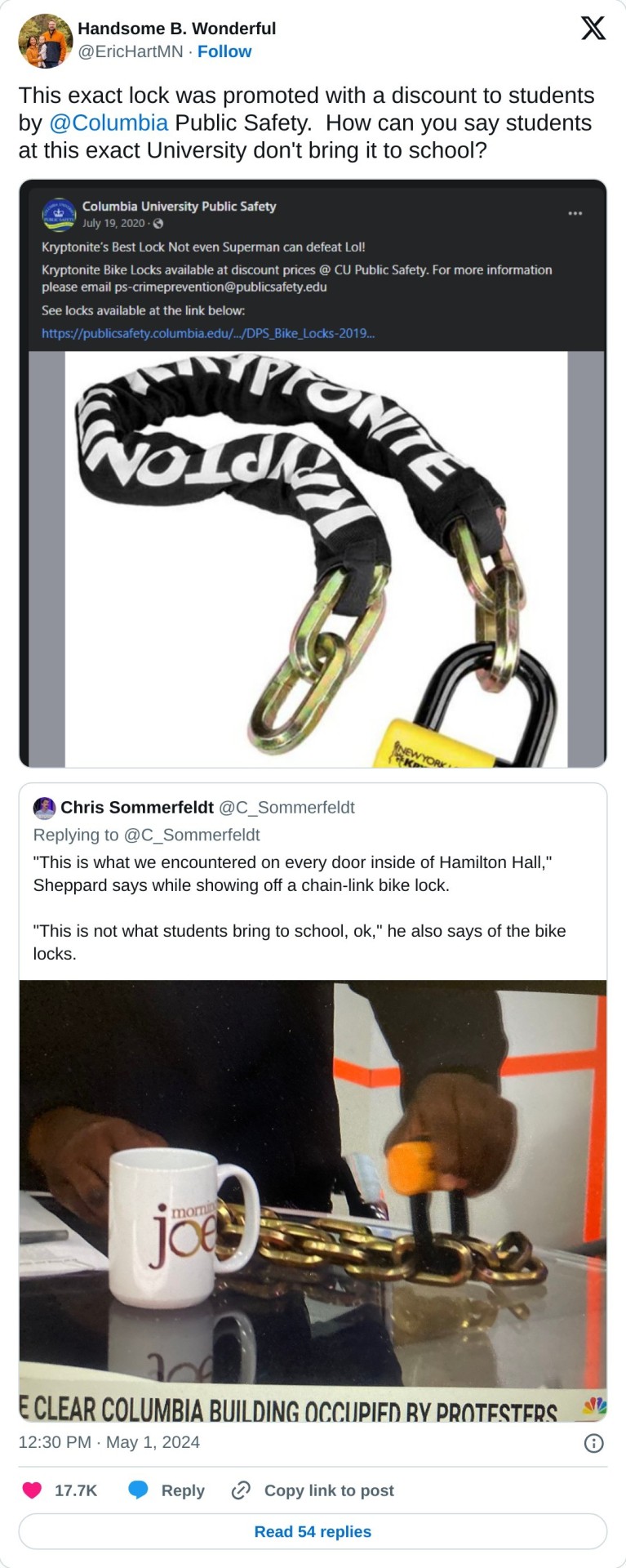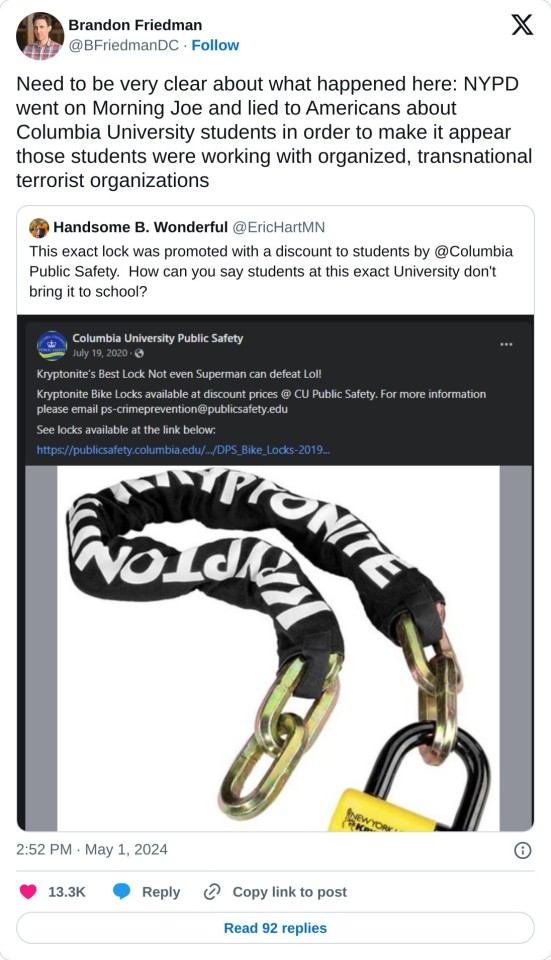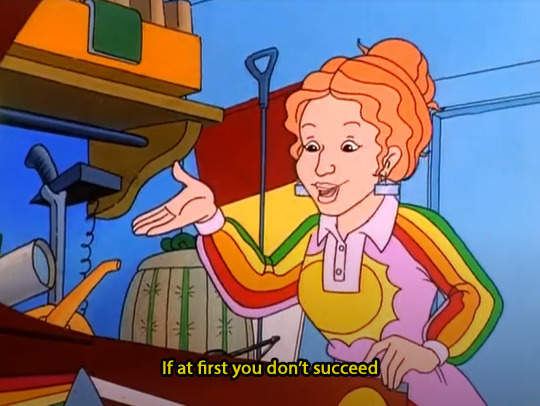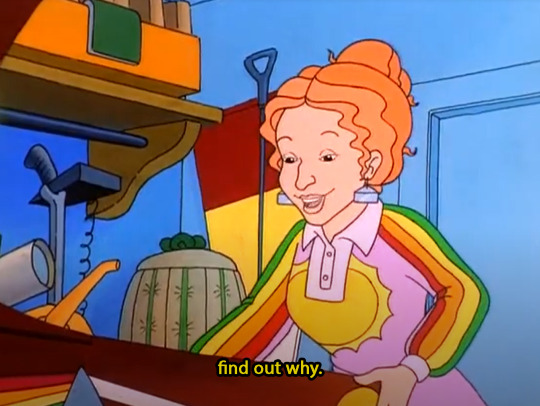Text
Tell me about a turn of phrase that introduced you to the power of language, especially if it comes from a source that most people disregard.
I'll start: one of the first times I really fell in love with a line from a song was when I heard "I'd Really Love To See You Tonight" on the radio.
The chorus goes:
I'm not talking about moving in
And I don't want to change your life
But there's a warm wind blowing the stars around
And I'd really love to see you tonight
I have been obsessed with the line "there's a warm wind blowing the stars around" since I was something like 6 years old. It's so beautifully economic in its word use, isn't it? You know that the night is clear and beautiful, it's windy but warm, it's a perfect night for being outside and looking at the sky. In eight words, even as a small child, I had a perfect mental image of what that night looks like.
The other one that always comes to mind is the Muppet Christmas Carol song "It Feels Like Christmas," for one line only:
It is the summer of the soul in December
The "s" sound in summer, soul, and December all fall on the beat. It is a perfect example of using consonance (as opposed to alliteration, which would require those sounds to all be at the start of the word) in lyrics or poetry, and is one of the first times I really remember that concept sticking in my mind. (I use consonance very heavily in my poetry, so that's, like, formative.)
Tell me about the language that showed you what language can do - and for my sanity, please make it cool stuff and not like "and that's how I learned how shitty propaganda works," bc while that is in fact part of how language works, this is Tunglr dot com and I'd prefer to have a nice time today. Thanks.
1K notes
·
View notes
Text
I find the common idea that people of marginalized identities always want to write about those identities very tiring. Not every story is meant to be a direct reflection of the author's own experiences, which seems easy for people to grasp when the author is a cishet white guy, but apparently not so much when they're almost anyone else.
22 notes
·
View notes
Text
ohhhhh my god u made your greedy rich villain fat? should we tell everyone? should we throw a party? should we invite jk rowling
3K notes
·
View notes
Text
I'm always seeing this sentiment of "I have got to make my art weirder" or people begging for weirder art but here's the thing, Weird is not a brand. You cannot rack your brains trying to figure out the "Weird" formula. You don't get weird art by artificially forcing whatever you think is "weird."
You get weird art (and I think "weird" is sometimes people groping for a way of saying non-corporatized) by figuring out what you like, deep down, even (especially) if you think it's embarrassing
and wallowing in it like a pig
9K notes
·
View notes
Text
How Do I Make My Fictional Gypsies Not Racist?
(Or, "You can't, sorry, but…")
You want to include some Gypsies in your fantasy setting. Or, you need someone for your main characters to meet, who is an outsider in the eyes of the locals, but who already lives here. Or you need a culture in conflict with your settled people, or who have just arrived out of nowhere. Or, you just like the idea of campfires in the forest and voices raised in song. And you’re about to step straight into a muckpile of cliches and, accidentally, write something racist.
(In this, I am mostly using Gypsy as an endonym of Romany people, who are a subset of the Romani people, alongside Roma, Sinti, Gitano, Romanisael, Kale, etc, but also in the theory of "Gypsying" as proposed by Lex and Percy H, where Romani people are treated with a particular mix of orientalism, criminalisation, racialisation, and othering, that creates "The Gypsy" out of both nomadic peoples as a whole and people with Romani heritage and racialised physical features, languages, and cultural markers)
Enough of my friends play TTRPGs or write fantasy stories that this question comes up a lot - They mention Dungeons and Dragons’ Curse Of Strahd, World Of Darkness’s Gypsies, World Of Darkness’s Ravnos, World of Darkness’s Silent Striders… And they roll their eyes and say “These are all terrible! But how can I do it, you know, without it being racist?”
And their eyes are big and sad and ever so hopeful that I will tell them the secret of how to take the Roma of the real world and place them in a fictional one, whilst both appealing to gorjer stereotypes of Gypsies and not adding to the weight of stereotyping that already crushes us. So, disappointingly, there is no secret.
Gypsies, like every other real-world culture, exist as we do today because of interactions with cultures and geography around us: The living waggon, probably the archetypal thing which gorjer writers want to include in their portrayals of nomads, is a relatively modern invention - Most likely French, and adopted from French Showmen by Romanies, who brought it to Britain. So already, that’s a tradition that only spans a small amount of the time that Gypsies have existed, and only a small number of the full breadth of Romani ways of living. But the reasons that the waggon is what it is are based on the real world - The wheels are tall and iron-rimmed, because although you expect to travel on cobbled, tarmac, or packed-earth roads and for comparatively short distances, it wasn’t rare to have to ford a river in Britain in the late nineteenth century, on country roads. They were drawn by a single horse, and the shape of that horse was determined by a mixture of local breeds - Welsh cobs, fell ponies, various draft breeds - as well as by the aesthetic tastes of the breeders. The stove inside is on the left, so that as you move down a British road, the chimney sticks up into the part where there will be the least overhanging branches, to reduce the chance of hitting it.
So taking a fictional setting that looks like (for example) thirteenth century China (with dragons), and placing a nineteenth century Romanichal family in it will inevitably result in some racist assumptions being made, as the answer to “Why does this culture do this?” becomes “They just do it because I want them to” rather than having a consistent internal logic.
Some stereotypes will always follow nomads - They appear in different forms in different cultures, but they always arise from the settled people's same fears: That the nomads don't share their values, and are fundamentally strangers. Common ones are that we have a secret language to fool outsiders with, that we steal children and disguise them as our own, that our sexual morals are shocking (This one has flipped in the last half century - From the Gypsy Lore Society's talk of the lascivious Romni seductress who will lie with a strange man for a night after a 'gypsy wedding', to today's frenzied talk of 'grabbing' and sexually-conservative early marriages to ensure virginity), that we are supernatural in some way, and that we are more like animals than humans. These are tropes where if you want to address them, you will have to address them as libels - there is no way to casually write a baby-stealing, magical succubus nomad without it backfiring onto real life Roma. (The kind of person who has the skills to write these tropes well, is not the kind of person who is reading this guide.)
It’s too easy to say a list of prescriptive “Do nots”, which might stop you from making the most common pitfalls, but which can end up with your nomads being slightly flat as you dance around the topics that you’re trying to avoid, rather than being a rich culture that feels real in your world.
So, here are some questions to ask, to create your nomadic people, so that they will have a distinctive culture of their own that may (or may not) look anything like real-world Romani people: These aren't the only questions, but they're good starting points to think about before you make anything concrete, and they will hopefully inspire you to ask MORE questions.
First - Why are they nomadic? Nobody moves just to feel the wind in their hair and see a new horizon every morning, no matter what the inspirational poster says. Are they transhumant herders who pay a small rent to graze their flock on the local lord’s land? Are they following migratory herds across common land, being moved on by the cycle of the seasons and the movement of their animals? Are they seasonal workers who follow man-made cycles of labour: Harvests, fairs, religious festivals? Are they refugees fleeing a recent conflict, who will pass through this area and never return? Are they on a regular pilgrimage? Do they travel within the same area predictably, or is their movement governed by something that is hard to predict? How do they see their own movements - Do they think of themselves as being pushed along by some external force, or as choosing to travel? Will they work for and with outsiders, either as employees or as partners, or do they aim to be fully self-sufficient? What other jobs do they do - Their whole society won’t all be involved in one industry, what do their children, elderly, disabled people do with their time, and is it “work”?
If they are totally isolationist - How do they produce the things which need a complex supply chain or large facilities to make? How do they view artefacts from outsiders which come into their possession - Things which have been made with technology that they can’t produce for themselves? (This doesn’t need to be anything about quality of goods, only about complexity - A violin can be made by one artisan working with hand tools, wood, gut and shellac, but an accordion needs presses to make reeds, metal lathes to make screws, complex organic chemistry to make celluloid lacquer, vulcanised rubber, and a thousand other components)
How do they feel about outsiders? How do they buy and sell to outsiders? If it’s seen as taboo, do they do it anyway? Do they speak the same language as the nearby settled people (With what kind of fluency, or bilingualism, or dialect)? Do they intermarry, and how is that viewed when it happens? What stories does this culture tell about why they are a separate people to the nearby settled people? Are those stories true? Do they have a notional “homeland” and do they intend to go there? If so, is it a real place?
What gorjers think of as classic "Gipsy music" is a product of our real-world situation. Guitar from Spain, accordions from the Soviet Union (Which needed modern machining and factories to produce and make accessible to people who weren't rich- and which were in turn encouraged by Soviet authorities preferring the standardised and modern accordion to the folk traditions of the indigenous peoples within the bloc), brass from Western classical traditions, via Balkan folk music, influences from klezmer and jazz and bhangra and polka and our own music traditions (And we influence them too). What are your people's musical influences? Do they make their own instruments or buy them from settled people? How many musical traditions do they have, and what are they all for (Weddings, funerals, storytelling, campfire songs, entertainment...)? Do they have professional musicians, and if so, how do those musicians earn money? Are instrument makers professionals, or do they use improvised and easy-to-make instruments like willow whistles, spoons, washtubs, etc? (Of course the answer can be "A bit of both")
If you're thinking about jobs - How do they work? Are they employed by settled people (How do they feel about them?) Are they self employed but providing services/goods to the settled people? Are they mostly avoidant of settled people other than to buy things that they can't produce themselves? Are they totally isolationist? Is their work mostly subsistence, or do they create a surplus to sell to outsiders? How do they interact with other workers nearby? Who works, and how- Are there 'family businesses', apprentices, children with part time work? Is it considered 'a job' or just part of their way of life? How do they educate their children, and is that considered 'work'? How old are children when they are considered adult, and what markers confer adulthood? What is considered a rite of passage?
When they travel, how do they do it? Do they share ownership of beasts of burden, or each individually have "their horse"? Do families stick together or try to spread out? How does a child begin to live apart from their family, or start their own family? Are their dwellings something that they take with them, or do they find places to stay or build temporary shelter with disposable material? Who shares a dwelling and why? What do they do for privacy, and what do they think privacy is for?
If you're thinking about food - Do they hunt? Herd? Forage? Buy or trade from settled people? Do they travel between places where they've sown crops or managed wildstock in previous years, so that when they arrive there is food already seeded in the landscape? How do they feel about buying food from settled people, and is that common? If it's frowned upon - How much do people do it anyway? How do they preserve food for winter? How much food do they carry with them, compared to how much they plan to buy or forage at their destinations? How is food shared- Communal stores, personal ownership?
Why are they a "separate people" to the settled people? What is their creation myth? Why do they believe that they are nomadic and the other people are settled, and is it correct? Do they look different? Are there legal restrictions on them settling? Are there legal restrictions on them intermixing? Are there cultural reasons why they are a separate people? Where did those reasons come from? How long have they been travelling? How long do they think they've been travelling? Where did they come from? Do they travel mostly within one area and return to the same sites predictably, or are they going to move on again soon and never come back?
And then within that - What about the members of their society who are "unusual" in some way: How does their society treat disabled people? (are they considered disabled, do they have that distinction and how is it applied?) How does their society treat LGBT+ people? What happens to someone who doesn't get married and has no children? What happens to someone who 'leaves'? What happens to young widows and widowers? What happens if someone just 'can't fit in'? What happens to someone who is adopted or married in? What happens to people who are mixed race, and in a fantasy setting to people who are mixed species? What is taboo to them and what will they find shocking if they leave? What is society's attitude to 'difference' of various kinds?
Basically, if you build your nomads from the ground-up, rather than starting from the idea of "I want Gypsies/Buryats/Berbers/Minceiri but with the numbers filed off and not offensive" you can end up with a rich, unique nomadic culture who make sense in your world and don't end up making a rod for the back of real-world cultures.
5K notes
·
View notes
Text
DEAR EDUCATIONALLY NEGLECTED HOMESCHOOLERS
I’ve gathered some resources and tips and tricks on self-educating after educational neglect. This is only what I did and what I know helped me. I’m about to graduate college with honors after having no education past the age of 9. I wouldn’t be here without the following. Everything is free, and at/well above the standard for education in the US.
The holy grail: Khan Academy. Nearly every course you could take is available here, in order and by grade level. Their open-source free courses rival some of the college classes I’ve taken. This is your most solid resource.
For inattentive types: Crash Course offers a variety of courses that are snappy, entertaining, and extremely rewarding. They work for my ADHD brain. They also have college prep advice, which is essential if you’re looking to go to higher education with no classroom experience.
To catch up on your reading: There are certain books that you may have read had you gone to school that you’ve missed out on. This list is the most well-rounded and can fill you in on both children’s books and classic novels that are essential or at least extremely helpful to be familiar with. You can find a majority of these easily at a local library (and some for free in PDF form online low key). There are a few higher level classics in here that I’d highly recommend. If it doesn’t work for you, I’d always recommend asking your local librarian.
*BE AWARE* The book list I recommend suggests you read Harry Potter books, and given their transphobic author you may or may not want to read them. If you choose to, I’d highly recommend buying the books secondhand or borrowing from a library to avoid financially supporting a living author with dangerous and damaging views.
TEST, TEST, TEST: Again, Khan Academy is your go-to for this. I don’t personally like standardized testing, but going through SAT and ACT courses was the best way I found to really reveal my gaps so that I could supplement.
Finally: As much as you can, enjoy the process. Education can be thrilling and teach you so much about yourself, and help shape your view of the world. It can get frustrating, but I’d like to encourage you that everyone can learn. No pace is the perfect pace, and your learning style is the right learning style for you. In teaching yourself, be patient, be kind, and indulge in the subjects you really enjoy without neglecting others. You are your teacher. Give yourself what others chose not to.
#i had a good homeschool education myself but i know kids who didn’t#learning is really wonderful and everyone should get to have fun with it
10K notes
·
View notes
Text
I think kafka’s diaries are the strongest evidence that journaling is not necessarily good for your mental health
134K notes
·
View notes
Text
I write for myself
*checks AO3 every few hours to see if I got any new kudos, comments or subscriptions*
36K notes
·
View notes
Text
reblog this and tell me something about your ocs that doesn’t get covered by the ask games. i want to know something obscure that you don’t normally get the excuse to talk about!
1 note
·
View note
Text
Excellent point, and I’m adding to it on behalf of all the undecided writers out there who don’t know if they’re more suited to outlining or intuitive writing.
I think the plotter/pantser labels have done writers a disservice bc so many people go into the process assuming they have to be one or the other and then run into exactly the type of writer’s block that the other method is designed to fix. It implies that there are categories of writers and that you need to find your place among them, when the reality is that everyone is just a writer, period, and that all these different tools and techniques are meant to fit to you, not the other way around.
I’m an outline defender until the day I die, but they’re definitely not the key to successful writing the way some people pretend they are. I’ve personally found that the best strategy for me is a mix—I’ll write an outline to give me the general (intended) shape of the story, then chuck it in a drawer until I hit a block and need some guidance. I can also say from experience with clients that they generally work best as a reference instead of a strict roadmap. You don’t want to get too married to a certain set of instructions, you just need to know that you’re vaguely headed in the right direction.
To OP’s point, it is 100% best to just go with your gut and utilize whatever writing method works best for you and actually helps you get your draft on paper (or word processor, or whatever). Expand your toolbox and make sure you know how to use all your tools properly, but don’t feel the need to hinge your entire writing process on them if you don’t find them helpful.
I have very few hills I will die on- but the utter un-importance of word-count in a first draft and novel outlines being a huge waste of time are two I will fight for.
Now obviously, if you're the kind of person who outlines and that works for you then absolutely fantastic, more power to you. This message isn't for you - keep on keeping on.
But I'm AM talking to all you intuitive writers out there- the kind of writers who get stuck on outlines and then never get to writing because of it. The kind of writers who just need to jump into the story and feel what works- get a feel for the characters -etc.
But like- it's entirely possible to write a novel that way. I've written all of them in that form, and it works just fine for me. I didn't need an outline.
I know the big drive for outlining has to do with saving you from doing rewrites...but I don't particularly buy that... in the same way that college doesn't guarantee you a job, the outline you spent time putting together at the beginning may be very quickly broken when you get into the practical writing. For me, outlines have always been a colossal waste of time.
The other issue I've had with outlining from my experience is that it CAN lock you into a course of action that doesn't work or doesn't account for story spontaneity or being flexible to the way the story wants to write itself.
This is definitely not everyone's philosophy out there- I see writing recommendation and tips post every day that say one MUST outline, or you SHOULD or face the evils of the rewrite and eh...it's really just not true- or at the very least, its subjective.
As with most things, trust your gut. And if it's telling the outline to f off, then I recommend following it.
You're better off just writing the damn book then trying to play by somebodies' else's rules.
#I did think for a brief second that the original post was suggesting you don’t have to rewrite and was so ready to throw hands about it#what do you MEAN you don’t have to face the evils of the rewrite if you don’t want to???#*lowers pitchfork* false alarm#but overall yeah plotter and pantser mean nothing and you should just write the way that feels best#writeblr#writing advice#ley rambles
21 notes
·
View notes
Text
telling my friends my plans for my novel like JUST YOU WAIT 5 YEARS ITS GONNA BE SO GOOD
673 notes
·
View notes
Text
public libraries are so sick. there are five books I want to read and they're all relatively new so they're only available in hardback which is so expensive but it just cost me $0 to place holds on them. five books for zero dollars. it requires nothing but clicking a button and then going to the library to pick them up when they're ready. zero dollars. that's crazy
11K notes
·
View notes
Text
it actually is super important to “write for the audience you want and not the audience you’re afraid of.” because if you do write for the people who would hate your work if you didn’t bend over backwards trying to cater to them, inevitably you are going to have more of those people engaging with you and your work than you would otherwise. you have every right to explore how YOU feel in your own work and every right to target one audience over another, so don’t try and impress people you don’t want anything to do with. it’ll hurt you in the long run, in more ways than one.
934 notes
·
View notes
Text
if u pay attention there are themes and motifs on my blog
9K notes
·
View notes





